Just In
- 3 hrs ago

- 12 hrs ago

- 16 hrs ago

- 18 hrs ago

Don't Miss
- Sports
 IND W vs BAN W: WPL Stars Named in Indian Women's Squad For Bangladesh T20I Series
IND W vs BAN W: WPL Stars Named in Indian Women's Squad For Bangladesh T20I Series - Finance
 Stocks To Watch: M&M, HAL, ZEEL, TCS, Thermax, Bharti Airtel, Cipla & More
Stocks To Watch: M&M, HAL, ZEEL, TCS, Thermax, Bharti Airtel, Cipla & More - News
 Foreign Entities Funding NGOs To Stall Public Projects: IT Dept Tells SC
Foreign Entities Funding NGOs To Stall Public Projects: IT Dept Tells SC - Movies
 Aadujeevitham Box Office Collection Day 20 Prediction: Prithviraj's Movie Sustains Positive Momentum
Aadujeevitham Box Office Collection Day 20 Prediction: Prithviraj's Movie Sustains Positive Momentum - Education
 NEET PG 2024: Check the Registration and Exam Date Here
NEET PG 2024: Check the Registration and Exam Date Here - Automobiles
 Navigating Through Car Insurance Options: A Guide For Indian Drivers
Navigating Through Car Insurance Options: A Guide For Indian Drivers - Technology
 Xiaomi Smarter Living 2024 Set For April 23 in India; What to Expect?
Xiaomi Smarter Living 2024 Set For April 23 in India; What to Expect? - Travel
Maximise Your First Indian Adventure With These Travel Tips
What Happens After Coronavirus Enters The Body? Everything You Need To Know
Scientists are still studying the severe acute respiratory syndrome coronavirus 2 (SARS-CoV-2)and with each passing day, multiple studies are surfacing about the virus that has infected 2,830,082 people and caused 197,246 deaths worldwide.
Seeing the SARS-CoV-2's highly contagious nature, the World Health Organization (WHO) has declared coronavirus a pandemic disease. We all know how fast the coronavirus spreads from one infected person to another, but one thing that many of us don't know is what happens when the virus enters the human body and how it affects other organs.
We will explain it here.
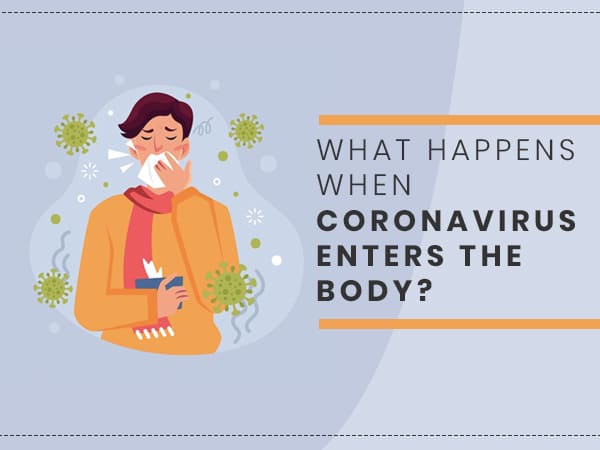
How Does Coronavirus Enter The Body?
The coronavirus spreads through the water droplets when an infected person coughs or sneezes and these water droplets stay in the air or settle on a surface that you touch before touching your eyes, nose or mouth. This makes the virus easier to enter through the mucous membranes and then moving down your respiratory tract. The respiratory tract includes your mouth, nose, throat and lungs [1].
When an infected person comes in close contact i.e within one metre with someone, the water droplet transmission occurs. Also, the virus transmission may happen through fomites. Therefore, the virus can enter your body either through direct contact or indirect contact.
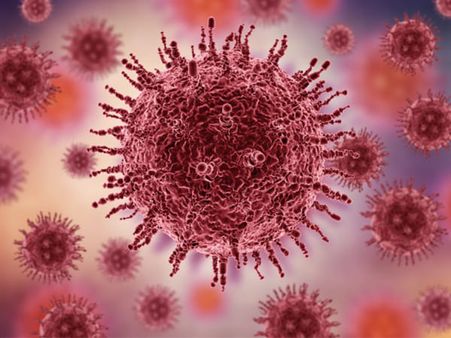
What Happens After Coronavirus Enters The Body?
Coronaviruses are large, enveloped positive sense RNA viruses that have a diameter ranging from 60 nm to 140 nm. The virus has spike-like projections on its surface, which gives it a crown-like appearance if seen under an electron microscope.
The virus infects your body by binding to the healthy cells through the help of their spikes, which allows the virus to attach to the healthy cells strongly.
According to a study published in the journal Annual Review of Virology, coronavirus latches themselves to the angiotensin-converting enzyme 2 (ACE2) receptors present on the surface of the healthy cells and enter the human body [2]. Then, it starts making multiple copies of itself and multiplies throughout the body, killing some of the healthy cells and eventually causing damage to several organs.

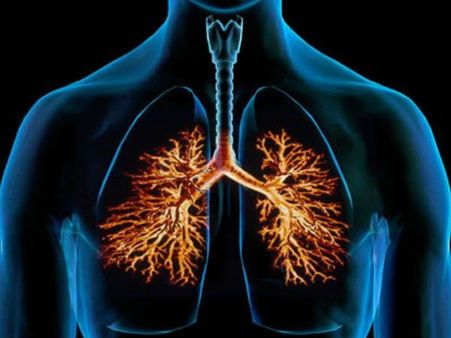
What Organs Are Affected By Coronavirus?
Once the coronavirus starts latching to the healthy cells of the host, it eventually starts damaging lungs, liver, kidneys, heart, stomach and intestines.
• Lungs
Since the coronavirus is a respiratory illness, the lungs are affected first. The lungs may become inflamed, making it difficult for you to breathe. And this can lead to further complications like pneumonia, an infection that causes inflammation in the air sacs (alveoli) of the lungs, acute respiratory distress syndrome (ARDS), a condition in which fluid collects in the air sacs of the lungs and sepsis, a disease that affects the lungs and other organs [3], [4].

• Liver
Coronavirus causes the liver cells to become inflamed or damaged and this, in turn, leads to the leakage of more than normal amounts of enzymes into the bloodstream. A study report found that people with severe cases of COVID-19 showed more signs of liver injury [5].
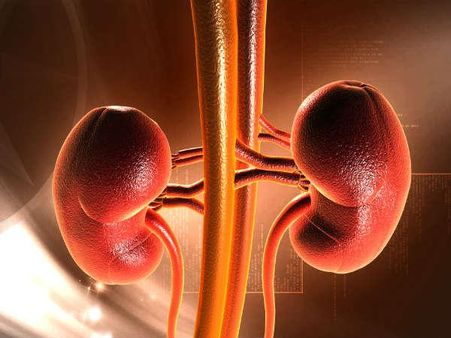
• Kidney
Coronavirus causes inflammation in the kidneys as well. Acute kidney injury has been reported in people with severe cases of COVID-19.
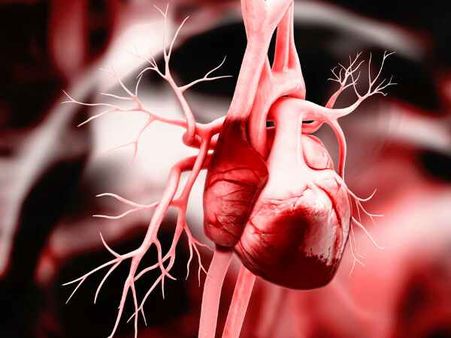
• Heart
Coronavirus can affect the heart and blood vessels, which may further cause irregular heartbeats and the blood flow to other parts of the body may stop. So, people with heart disease should take extra care of themselves.

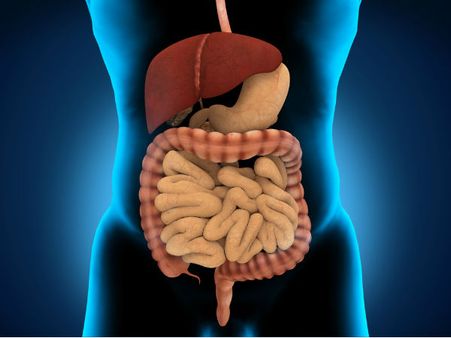
• Stomach and intestines
According to a CDC report, some people with coronavirus disease have experienced gastrointestinal symptoms like diarrhoea and nausea before the onset of symptoms such as fever and lower respiratory tract symptoms [6].
To Conclude...
Coronavirus is a highly contagious virus that can affect your body in different ways, by causing damage to the organs like the heart, liver, kidneys, lungs, stomach and intestines.
Protect yourself by incorporating necessary precautionary measures like washing hands with soap and water frequently, maintaining social distancing, wearing masks and washing fruits and veggies before cooking them.
-
 healthCOVID Surge In India: Do You Need A COVID-19 Booster Shot?
healthCOVID Surge In India: Do You Need A COVID-19 Booster Shot? -
 disorders cureCommon COVID Symptoms In Fully Vaccinated Individuals: What You Should Know
disorders cureCommon COVID Symptoms In Fully Vaccinated Individuals: What You Should Know -
 wellnessMild COVID Linked To Life-Threatening Blood Clots, Increased Risk Of Cardiovascular Disease; Study
wellnessMild COVID Linked To Life-Threatening Blood Clots, Increased Risk Of Cardiovascular Disease; Study -
 wellnessCOVID-19 Variants In India: New COVID Variant May Pose Threat To Elderly People
wellnessCOVID-19 Variants In India: New COVID Variant May Pose Threat To Elderly People -
 basicsCovid-19 Linked To Early Onset Of Periods: What You Need To Know
basicsCovid-19 Linked To Early Onset Of Periods: What You Need To Know -
 wellnessCOVID XBB Variants Of Omicron In India: What You Should Know
wellnessCOVID XBB Variants Of Omicron In India: What You Should Know -
 disorders cureNew Omicron Subvariant BQ.1 Detected In Maharashtra: What You Should Know
disorders cureNew Omicron Subvariant BQ.1 Detected In Maharashtra: What You Should Know -
 disorders cureOmicron BF.7 In India, Risk Of Fresh Wave During Diwali: What You Should Know
disorders cureOmicron BF.7 In India, Risk Of Fresh Wave During Diwali: What You Should Know -
 wellnessCoronavirus Residues Might Be Causing Long COVID: New Study
wellnessCoronavirus Residues Might Be Causing Long COVID: New Study -
 wellnessCentury-Old TB Vaccine Could Be Effective Against Covid-19 And Other Infections: New Study
wellnessCentury-Old TB Vaccine Could Be Effective Against Covid-19 And Other Infections: New Study -
 disorders cureCovid-19 Patients At Risk Of Neurological & Psychiatric Conditions Two Years After The Infection: New Study
disorders cureCovid-19 Patients At Risk Of Neurological & Psychiatric Conditions Two Years After The Infection: New Study -
 wellnessCOVID In Smokers: An Expert Explains
wellnessCOVID In Smokers: An Expert Explains


 Click it and Unblock the Notifications
Click it and Unblock the Notifications



